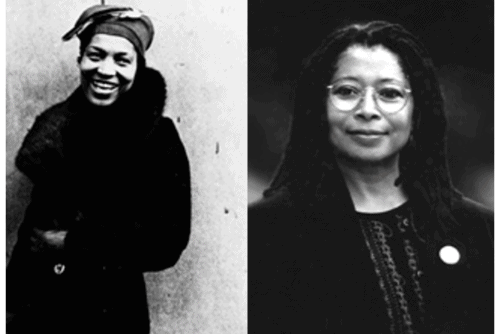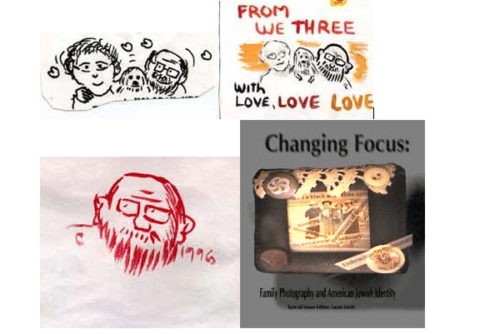In the following excerpts from her Virginia Gildersleeve lecture, delivered on October 3, 2003, Alice Walker speaks of her conception of Hurston’s legacy. Every conference, panel, paper, and, indeed, Web journal on Zora Neale Hurston owes a debt to Alice Walker for her efforts in bringing Hurston’s life and work to our collective attention nearly 30 years ago. In a 1975 article, “In Search of Zora Neale Hurston,” published in Ms. magazine, Walker began a process of honoring Hurston’s life and work and uncovering her legacy by narrating her own efforts to locate Hurston’s grave and place a marker on it. At that time, Walker made an important contribution to biographical work on Hurston by recounting the stories of some that knew her in Florida (and posing as a Hurston niece to do so); and she also provided a bibliography of Hurston’s major works, those in and out of print, and thereby ignited Hurston interest from academics and publishers. Even more importantly, perhaps, than Walker’s recovery of Hurston biography or bibliography is the spiritual work that her article enacts—the reclamation of a foremother and that mother’s literary “garden,” a profoundly personal and deeply political act. Alice Walker last spoke about Hurston at Barnard in 1975; we were especially pleased to welcome her back as a Gildersleeve lecturer for “Jumpin’ at the Sun.”
Alice Walker narrates her personal journey to Zora Neale Hurston through a childhood and education that was devoid of the presence of black women writers.
Alice Walker reads a poem that Zora Neale Hurston “would have loved.”
Alice Walker delivers the 2003 Virginia Gildersleeve lecture (full-length lecture).




